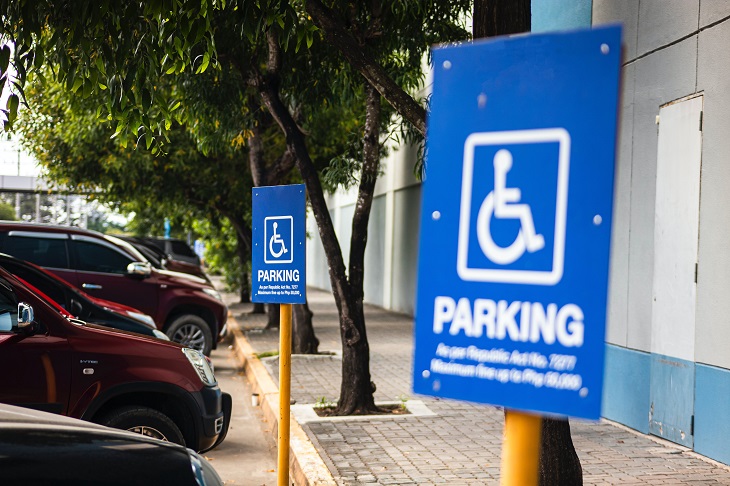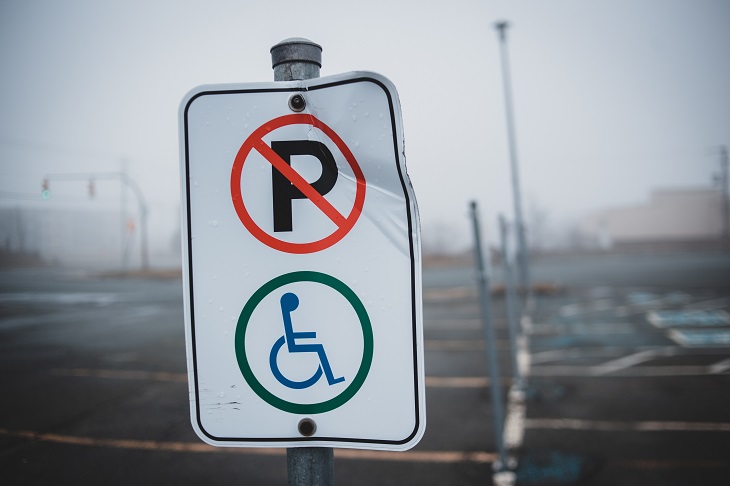In the pursuit of creating inclusive and accessible environments, disabled parking spaces play a crucial role in ensuring that individuals with mobility challenges can navigate public spaces with dignity and ease. Understanding disabled parking qualifying conditions that render people eligible for a handicap parking permit is not only essential for those seeking permits, but also for society at large to foster an environment of empathy and support.
This guide aims to shed light on the diverse range of disabilities that may warrant accessible parking privileges, providing a comprehensive overview of the legal framework, qualifying conditions, and impact on individuals’ daily lives. By delving into this subject, we hope to contribute to a more inclusive society where everyone, regardless of their abilities, can access the spaces and services they need. From Georgia accessible parking to Idaho handicap parking spaces to South Dakota ADA-compliant parking spaces, parking that’s accessible to those with a range of disabilities is one of the most important public amenities we have nationwide!
Legal Framework for Disabled Parking: Understanding the Basics
Understanding the basics of the legal framework for disabled parking is pivotal in creating an inclusive environment that respects the needs of individuals with mobility challenges. At its core, this framework is designed to safeguard the rights of people with disabilities, ensuring equitable access to public spaces. The legal regulations governing disabled parking vary across jurisdictions, but they universally aim to eliminate barriers and enhance accessibility.
In most regions, a key document is the Americans with Disabilities Act (ADA) in the United States or its equivalent in other countries. This legislation sets forth guidelines for creating accessible parking spaces, complete with specifications for size, signage, and proximity to entrances. Understanding these specifications is crucial for businesses, municipalities, and individuals to comply with the law and promote an inclusive atmosphere.
Legal frameworks also often delineate the process for obtaining a disabled parking permit, outlining the qualifying conditions that individuals must meet. These conditions may range from mobility impairments and chronic health conditions to visual or neurological disorders. Qualifying conditions will differ from state to state – Minnesota handicap parking requirements will be different from those outlined in the Massachusetts disabled parking program, which will in turn differ from the conditions required for Michigan accessible parking application, and so on.
By comprehending the legal intricacies, society can better appreciate the significance of disabled parking accommodations and work collaboratively towards creating an environment that embraces diversity and ensures equal access for everyone.
Qualifying Disabilities for Accessible Parking Permits
Qualifying disabilities for accessible parking permits serve as the cornerstone for ensuring that individuals who genuinely need these accommodations have convenient access to public spaces. The eligibility criteria typically revolve around mobility impairments, chronic health conditions, visual or neurological disorders, and other substantial limitations affecting one’s ability to walk and move independently. Governments and relevant authorities establish specific guidelines to determine who qualifies for accessible parking permits, often aligning with national disability acts or equivalent legislation.
Mobility impairments, such as difficulty walking or the use of mobility aids, are commonly considered qualifying conditions. Chronic health conditions that significantly impact an individual’s ability to walk, stand, or engage in daily activities are also taken into account. Visual impairments, which may not always be apparent, and neurological disorders affecting motor skills are assessed for eligibility as well.
Healthcare professionals, including physicians and specialists, play a crucial role in evaluating individuals seeking accessible parking permits. Their expert assessments help establish the severity and permanence of the disability, ensuring that the permits are allocated to those who genuinely require them. The process is designed to be rigorous, aiming to maintain the integrity of disabled parking accommodations and prioritize those with legitimate needs, thus contributing to a fair and equitable distribution of accessible parking spaces.
As we mentioned above, qualifying conditions for disabled parking differ on a state-by-state basis. The Oregon disabled parking program may have a different set of eligibility rules to those outlined in Iowa disabled parking laws, and so on. Be sure to check your state’s particular qualifying conditions here. But first, let’s take a look at some generally accepted qualifying conditions for handicap parking!
Mobility Impairments: A Comprehensive Overview
Mobility impairments stand as a primary qualifying condition for disabled parking permits, recognizing the significant impact such challenges have on an individual’s ability to move and navigate public spaces. These impairments encompass a broad spectrum, ranging from orthopedic issues and musculoskeletal disorders to conditions affecting joints, muscles, and the ability to bear weight. Essentially, any impairment that substantially limits an individual’s ability to walk or necessitates the use of assistive devices qualifies as a valid reason for accessible parking privileges.
Common examples include individuals with arthritis, limb amputations, or those recovering from surgeries that affect mobility. For someone with a mobility impairment, even short distances can become daunting, and the availability of accessible parking spaces near entrances becomes essential to their daily activities.
Understanding and acknowledging mobility impairments as qualifying conditions for disabled parking permits is pivotal for ensuring equal access and promoting inclusivity. Rigorous evaluation processes, often involving healthcare professionals, aim to determine the severity and permanence of these impairments, ensuring that parking accommodations are allocated to those who genuinely require them. By prioritizing the needs of individuals with mobility challenges, society takes a crucial step towards creating an environment where everyone, regardless of physical abilities, can participate fully and independently in public life.
Chronic Health Conditions and Their Impact on Parking Eligibility
Chronic health conditions play a significant role in determining eligibility for disabled parking permits, recognizing the pervasive impact these conditions can have on an individual’s daily life. Conditions such as heart disease, respiratory disorders, and chronic pain syndromes can profoundly limit mobility, making it challenging for individuals to traverse parking lots and access essential services.
Those with chronic health conditions may experience fatigue, shortness of breath, or physical discomfort that necessitates close proximity parking. The evaluation process for parking eligibility often involves healthcare professionals who assess the severity and persistence of these health challenges, ensuring that accessible parking spaces are allocated to those facing genuine impediments. Recognizing chronic health conditions as qualifying factors underscores the broader understanding of disability, fostering inclusivity and equal access in our communities.
Neurological Disorders: Navigating Parking Accessibility
Neurological disorders, encompassing conditions like multiple sclerosis, Parkinson’s disease, and neuropathy, stand as valid qualifying factors for disabled parking permits. These disorders can profoundly impact an individual’s ability to control movements, maintain balance, and navigate spaces safely. The unpredictability and variability of symptoms often make walking longer distances a formidable challenge.
Recognizing neurological disorders as a qualifying condition for accessible parking underscores the importance of accommodating individuals facing invisible but impactful challenges. Healthcare professionals play a crucial role in assessing the severity and persistence of these disorders, ensuring that those in need receive the necessary parking accommodations.
Visual Impairments and the Need for Specialized Parking
Visual impairments, including conditions such as blindness or low vision, are legitimate qualifying factors for disabled parking permits. While these disabilities might not affect mobility in the traditional sense, they significantly impact an individual’s ability to navigate and safely traverse parking lots and public spaces. Accessible parking spaces situated closer to entrances become crucial for those with visual impairments, minimizing potential hazards and enhancing their independence.
The recognition of visual impairments as a qualifying condition reflects a broader understanding of disability, emphasizing the diverse needs of individuals. The assessment process often involves healthcare professionals who evaluate the impact of visual impairment on daily activities, ensuring that those facing such challenges receive the necessary parking accommodations for a more inclusive and accessible community.
Hidden Disabilities: Addressing the Challenges
Hidden disabilities, such as chronic pain conditions, mental health disorders, or certain neurological issues, are increasingly acknowledged as qualifying factors for disabled parking permits. While not immediately apparent, these conditions significantly impact an individual’s ability to walk or navigate public spaces without additional challenges. Hidden disabilities can lead to fatigue, anxiety, or cognitive impairments that make accessing services difficult without the convenience of closer parking.
The evolving recognition of hidden disabilities in disabled parking considerations reflects a commitment to inclusivity, acknowledging that not all impairments are visible. Evaluation processes often involve healthcare professionals who assess the impact of these hidden disabilities on an individual’s daily life, ensuring equitable access to parking accommodations and fostering a more compassionate and understanding society.
Temporary vs. Permanent Disabilities: Implications for Parking Permits
Distinguishing between temporary and permanent disabilities is essential in the context of disabled parking permits, as it ensures that these accommodations are allocated appropriately. Temporary disabilities, resulting from injuries or medical conditions with defined recovery periods, may warrant short-term access to accessible parking to facilitate rehabilitation and prevent further health complications. In contrast, permanent disabilities, such as chronic health conditions or lifelong impairments, necessitate ongoing access to disabled parking spaces to support individuals in their daily lives.
Understanding this distinction is crucial for maintaining the integrity of disabled parking systems. Temporary permits often involve a specific duration and require periodic reassessment, ensuring that they are only used when genuinely needed. Permanent disabilities, on the other hand, involve more enduring conditions, and permits are typically issued for longer durations. Striking a balance between accommodating temporary needs and providing consistent support for permanent disabilities contributes to an inclusive and fair disabled parking framework.
The rules around temporary and permanent disabilities and parking permits may change from state to state – Connecticut disabled parking laws may outline different temporary vs. permanent disability rules from Florida ADA parking guidelines and so on, so always check your state’s rules for the correct info.
The Role of Healthcare Professionals in Assessing Eligibility
Healthcare professionals play a pivotal role in assessing eligibility for disabled parking permits, bringing an expert perspective to ensure the equitable distribution of these accommodations. Their involvement ensures that permits are allocated based on accurate evaluations of an individual’s medical condition, validating the severity and impact of their disability. In assessing eligibility, healthcare professionals consider various factors, such as mobility limitations, chronic health conditions, or neurological disorders.
This rigorous evaluation process not only upholds the integrity of disabled parking systems but also prevents misuse, guaranteeing that permits are granted to those with genuine and substantial needs. The expertise of healthcare professionals contributes to a fair and compassionate system, aligning accessible parking provisions with the specific requirements of individuals facing diverse health challenges.
As with qualifying conditions and other laws, the process of obtaining a handicap parking permit may differ from state to state. The physician application process for Wyoming disabled parking permits may be different from the one for Delaware disabled parking placards and so on, so be sure to check your state’s guidelines.
Ensuring Fairness: Enforcement and Compliance with Disabled Parking Regulations
Ensuring fairness in disabled parking relies heavily on the effective enforcement and compliance with established regulations. Law enforcement agencies, parking attendants, and municipal authorities play crucial roles in upholding the integrity of disabled parking spaces. Rigorous enforcement involves monitoring and penalizing unauthorized use of accessible parking spots, deterring individuals from abusing the system. Compliance measures, such as clear signage and properly designated spaces, contribute to an environment that respects and accommodates individuals with disabilities.
Regular audits and inspections help maintain compliance at parking facilities, ensuring that the spaces adhere to stipulated dimensions and are conveniently located. Inaccessible spaces or those designated without due consideration may impede fair access. Educational campaigns also foster awareness, informing the public about the importance of respecting disabled parking regulations and the impact of their compliance on the lives of those with disabilities.
Since laws and regulations differ from state to state, disabled parking enforcement methods may differ across the country as well. Ohio handicap parking violations may be slightly different to Kentucky accessible parking violations; Virginia ADA parking fines may not be the same amount as Mississippi disabled parking penalties; and so on.
Ultimately, the commitment to fairness through enforcement and compliance creates an inclusive atmosphere, affirming that disabled parking provisions are not mere conveniences but essential components of equal access. By actively addressing violations and fostering a culture of understanding, society can collectively contribute to a more equitable and supportive environment for individuals with disabilities.
***
In the journey toward inclusivity, recognizing and respecting the diverse conditions that qualify individuals for disabled parking is a critical step. This guide has aimed to demystify the qualifying conditions, emphasizing the importance of creating a supportive environment for those with mobility challenges. As we navigate the complexities of disabilities, both visible and hidden, it becomes evident that a nuanced understanding of these conditions is crucial. By adhering to and promoting the regulations surrounding disabled parking, we contribute to a society that values accessibility and respects the unique needs of every individual.
Need more insight into disabled parking in your state? We’ve got you covered with info on everything from New Hampshire disabled parking fines to Maryland ADA parking permits to Alabama disabled parking regulations on the Dr Handicap website!
Featured image by CDC on Unsplash






